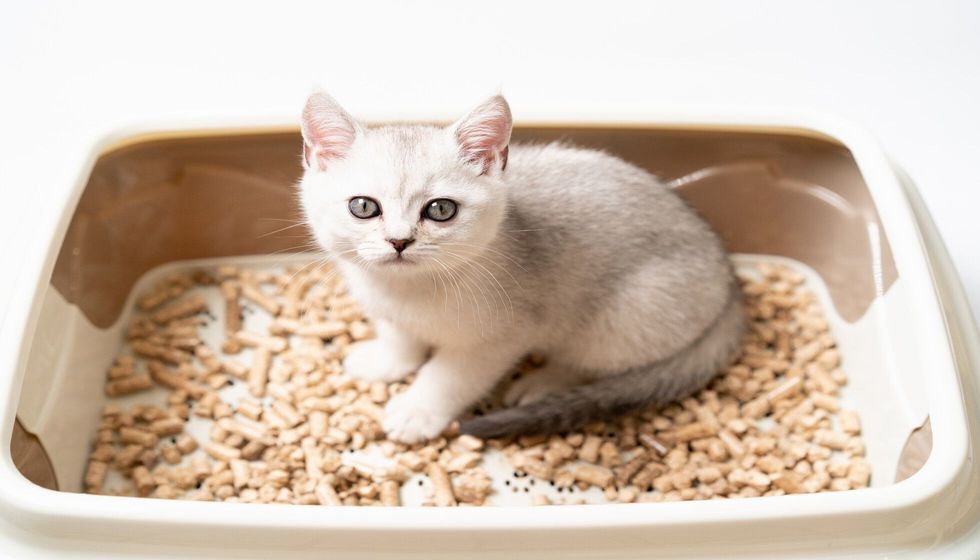Fluffy cats amuse us as pets to cuddle and play with.
Cats are intelligent, beautiful, and great companions. Did you ever find their behavior weird or strange at times?
As responsible pet owners, observing pets' behavior is essential. Making sure that you understand your dear friend’s behaviors well. Anything abnormal has to be identified and acted upon promptly to treat it accordingly and keep your pet happy.
Pets cannot speak, and cats are not as expressive as dogs. Your cat may be trying to tell you something by its actions, which may not appear logical to human beings. Sometimes it could indicate a sudden illness that you need to take care of immediately.
Felines show their emotions in different ways like rubbing their body and face against your feet, suddenly jumping with high energy, biting things like fabric, plastic, wool, etc. They also nibble on plants or lick or bite the owners' hair and face, which may appear funny to humans.
Drinking water from the tap is another feline act that makes them even more adorable.
Cats are very possessive about their litter box and the substrate used in covering it. They bury their feces under the substrate and keep it clean, which is a clear sign of feline instinct.
If you like these fun facts, you can discover more in our other articles why do cats like boxes? And why do cats stick their tongue out?
Why do the cats bury their poop for a long time?
Typically, cats bury their excrement to mark their territory. For wild cats, this is a way of concealing their location from predators to protect themselves and their kittens. It is a social behavior to depict co-existence with other cats without conflict.
Cats hiding poop is a normal phenomenon and not something to be worried about. This behavior has been seen for a long time in history, for generations, even before cats were domesticated.
In the wild, the dominant of the cat family, like lions, leopards, cheetah, etc., do not indulge in this activity. The weaker or lesser dominant cats cover their feces to make the dominant cats not feel challenged.
Why do cats bury their poop and pee?
Domestic cats, which do not face the challenge of predators since they are well protected at home, also cover their waste in the litter box. This is a sign of acceptance of the owner as the dominant cat of the house.
Cats are very sensitive to smell and can distinguish the smell of their poop and urine from the smell of other felines. There are unique scent markers called pheromones present in their excrement. Burying waste is a characteristic feature to demarcate the territory from other animals too.
Why do cats bury their poop and dogs don't?

Domestic cats sometimes do not cover their poop such as wild cats and behave as trained, keeping the litter box clean. They do not have the threat of predators and have no need for saving themselves or their kittens.
So covering cat poop is not always mandatory. There could be other medical reasons if the cat is not covering the feces.
It could be an injury to the paw, or the cat's health may be preventing it from covering. Other issues like a small litter box or a dirty litter box may deter cats' habit of burying their litter, in case of the domestic cats.
Cats are ambush hunters and sneak to get their prey. Basically, they do not want their presence to be known. Also, they are prey to several animals, so the cat tends to cover the poop.
Dogs typically do not bury their feces or do the covering act. They do not want to hide their presence and want to leave their mark by scratching their paws. Dogs have pheromones in their paws and use them to leave their scent.
Why do cats bury their poop so deep?
Though it is common for cats to cover their poop, many do not do it outside the litter box. Either they are not keen on marking the territory, or it simply is a natural way of living. Some felines may never learn this habit.
Cats have territory issues and can be seen as prey, whereas dogs are not prey and are not compelled to cover its poop or litter. So the cat has the inherent need to camouflage its presence and cover any existential evidence in whichever place, especially which can be smelled, hence it buries its poop deep.
Here at Kidadl, we have carefully created lots of interesting family-friendly facts for everyone to enjoy! If you liked our suggestions for why do cats bury their poop? Feline's waste-burying instinct explained! Then why not take a look at why do cats chatter?
Your kitty's curious chirping behavior revealed! Or why do bees die after stinging? Learn cool bee world facts.










